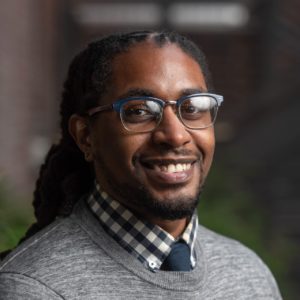To Understand Injustice, Get Close To It.
By Jerome Davis Growing up I had a passion for basketball and was awarded a scholarship to play at Jackson State University. My lifelong dream was realized when I was offered the opportunity to play professionally in Europe. Then I had a life-changing experience just before I was to leave. I attended a “Call of Justice” symposium in Montgomery, Alabama. The speaker was Bryan Stevenson, author of the book “Just Mercy” which was also made into a movie. He made some strong statements that resonated within me like: “Why do we throw away the broken?” and “Each of us is more than the worse thing we’ve done.” Then Mr. Stevenson made THE statement that altered the direction of my life “to understand injustice and inequity you must get closer to it.” After serving as an Intern for Mr. Stevenson’s Equal Justice Initiative, I moved to Memphis. I wanted to be in an urban location where I could make a difference. I currently work with an organization that assists hundreds of detainees make bail payments who would otherwise not be able to afford to post bail. Mr. Stevenson was right, “getting close” to people and situations has really opened my eyes.
Survival Mode
It is becoming way too common for a youth who enters the traditional Judicial System to remain a victim of the same system that is intended to reform them. When youth are seen and treated as criminals, it is how they come to see themselves and sadly, they naturally follow the course to becoming a criminal. Spending time in the rough environment of jail and being forced to perform demeaning community service tasks is dehumanizing to the soul. They go into survival mode just to endure their sentence. While in this mode they are unable to think about personal growth or improvement…just surviving. This thought process becomes so ingrained in them that too often when they get out, they are still operating in survival mode. Their fate is sealed.
Change the Trajectory
In my experience, youth in trouble are missing something. Something, or a series of things, have happened that caused the youth’s path to veer off in the wrong direction. The Vo-Zone Judicial Program can help change this negative trajectory. Rather than imposing sentences of jail time or demeaning community service, the Vo-Zone Judicial Program is designed to help the accused identify a better path by assigning peer students to provide experiences created to inspire the accused to achieve and maintain positive progress.
Encouraging Peers
Who would better understand the pressures and negative issues facing at-risk-youth than student peers from similar neighborhoods? For this reason, as soon as an accused youth is brought to a Vo-Zone facility, they are met with an encouraging group of their peers. These paid Student Interns, under the guidance of professional mentors, will serve as the Security Team, Attorneys, Judges and Juries throughout the entire trial process.
New Type of Sentencing
If the accused youth is found guilty in the Vo-Zone’s court room, they are sentenced to time spent in Vo-Zone’s programs. First, the sentenced youth will be assigned a team of paid Student Interns who are trained to guide them through a series of Escape Room type missions. These immersive experiences in the Escape Rooms are strategically designed to discover what is going on in the youth’s life.
As the second component of the sentence, the youth are required to spend time learning about a vocation of their choosing from the many offered. A paid Student-Intern, trained in that particular vocation, will shadow the youth throughout the process to provide support and positive encouragement.
Future Careers
The Vo-Zone’s School of Justice and Law will be an effective way to introduce youth to careers in Justice, Law and Service. The immersive nature of this learning experience will naturally draw them in. As Mr. Stevenson said, “To understand an issue you must be close to it.”

